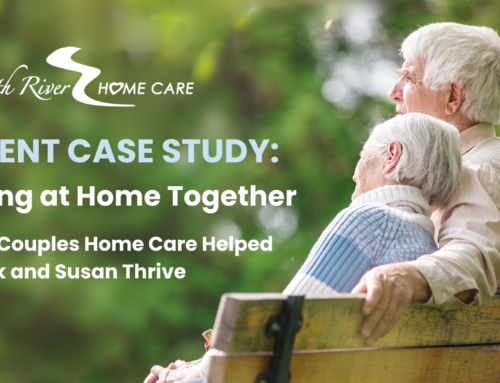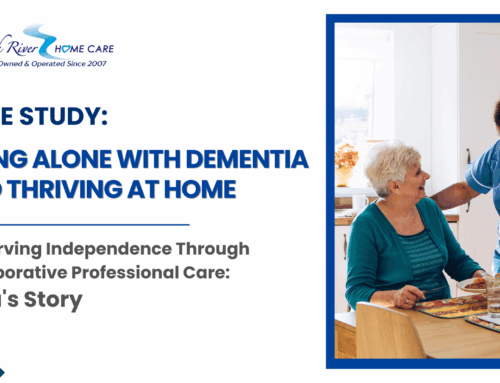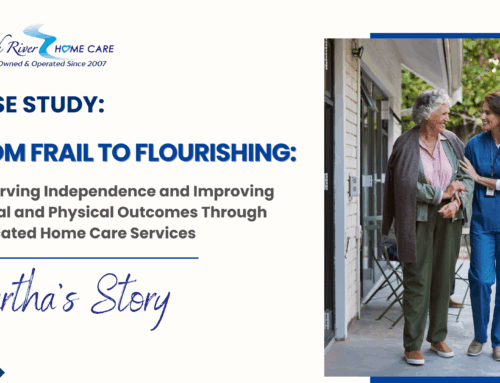Long before social distancing entered the public domain, health care agencies championed the importance of social engagement in the senior population. Decades of studies have correlated the multiple ways senior social isolation and loneliness affect physical and emotional well-being.
This is why we’ve continued to post articles supporting the many ways you can socialize for your good health and the wellbeing of those around you. The reality is that when polled, one-third of adults aged 45 and older report feeling lonely, and 25% of seniors in the U.S. are socially isolated.
CDC Alert: 5 Ways Loneliness & Social Isolation Hurts Seniors
After more than a year of social distancing and public restrictions, researchers are beginning to argue for balance after assessing the negative impacts these mandates have on seniors.
The CDC recently posted an article detailing how senior isolation and loneliness can lead to serious health conditions. The more isolated a senior is, the higher the risk for accelerating or exacerbating existing medical conditions.
This is no surprise to those of us who work in the senior home care arena. We spend each day witnessing what a difference companionship and human-to-human care mean to our clients.
The following are a handful of ways that lack of social engagement affects senior health and diminishes their quality of life.
1. Senior social isolation may increase the risk of premature death
The most foreboding statistic in the CDC post was the correlation between isolated seniors and premature death rates. There are multiple reasons for this connection.
On the physical front, lonely seniors are less likely to eat well or exercise regularly. They are more prone to being overweight or obese. Or, on the opposite end, isolated seniors with mobility issues or dementia may become severely malnourished and underweight. Either scenario increases their risk of serious health issues.
On the emotional level, loneliness and isolation diminish quality of life, which creates a diagnosis called failure to thrive. Seniors who lose their will to live have drastically higher rates of premature death when compared with those who have active social lives.
2. Senior social isolation may lead to dementia
The brain is an energy-efficient organ. If nerve pathways aren’t firing or areas of the brain aren’t being used, they start shutting down. The deterioration of brain matter through lack of use is a physiological version of, “If you don’t use it, you lose it.”
Unfortunately, seniors who live alone are far more likely to develop dementia than those with more social networks. The CDC article states that socially isolated seniors are 50% more at risk of developing dementia. Additionally, senior social isolation may result in a more rapid progression through the stages of the disease.
If you or a loved one recently received a dementia diagnosis, we recommend reading our article on caring for someone with dementia at home.
3. Senior social isolation may increase the risk for heart attack and stroke
According to the CDC, seniors who feel lonely or are socially isolated are 29% more at risk of developing heart disease and have a 32% increased chance of having a stroke.
Part of this elevated risk to the heart and brain has to do with lifestyle habits. Those who live alone or feel isolated, anxious, or depressed are less likely to eat well and exercise and more likely to smoke and consume more-than-normal quantities of alcohol.
While physical health is certainly important, equally (or perhaps, more) important is the life-giving energy of feeling connected, seen, loved, and appreciated. Social interaction and connection make us feel better about ourselves mentally and emotionally, which has an automatic benefit on our physical wellbeing.
4. Senior social isolation may lead to an elevated risk of depression, anxiety, and suicide
All three of those words are so painful to read. Who hasn’t experienced depression or crippling anxiety at least once in their life? For most of us, those feelings are situational, and they fade with the support of the ones we love.
Without normal social outlets and the ability to connect with others in person, seniors are more likely to experience chronic depression and anxiety and can lose their will to live. While in-home care is certainly one way to bring human-to-human companionship and connectivity back into the mix, technology is another.
The COVID pandemic has made it incredibly challenging to engage in face-to-face socialization, something we all agree seniors need most. Although nothing can replace a human hug or pat on the back, technology is an alternative to staying connected when socialization isn’t possible due to health and safety concerns.
A recent study by Cambridge University says that any connection is better than no connection. The authors encourage using words rather than touch to express your feelings, taking advantage of both video and telephone options to connect more often, and providing more frequent chances to connect with those demonstrating signs of loneliness or isolation.
5. Senior social isolation may result in diminished cognitive function
Social isolation elevates risks for dementia, but it also leads to diminished cognitive function for seniors who don’t have a dementia diagnosis. Keeping an active calendar, knowing what date and day of the week it is, honoring a healthy circadian rhythm – these can all go by the wayside when someone is isolated. It also gives them something to look forward to, something enjoyable.
As a result, perfectly healthy seniors report increased memory lapses, brain fogginess, sleep disturbance, and a reduced connection to the happenings in the world around them. Multiple studies conclude that a socially integrated lifestyle has a favorable influence on cognitive functioning.
Is Your Senior Loved One Feeling Lonely & Socially Isolated?
Certain red flags indicate a senior loved in is lonely or needs more support. The most obvious is a lack of interest in the people or activities the senior used to love. After noticing signs of depression, anxiety, or isolation, family caregivers can create a social care plan to challenge those feelings of isolation.
North River Home Care is ready to help battle senior social isolation and loneliness. Find out what to do when it’s more than just the blues, and what can be done to keep a senior off that path in the future.












